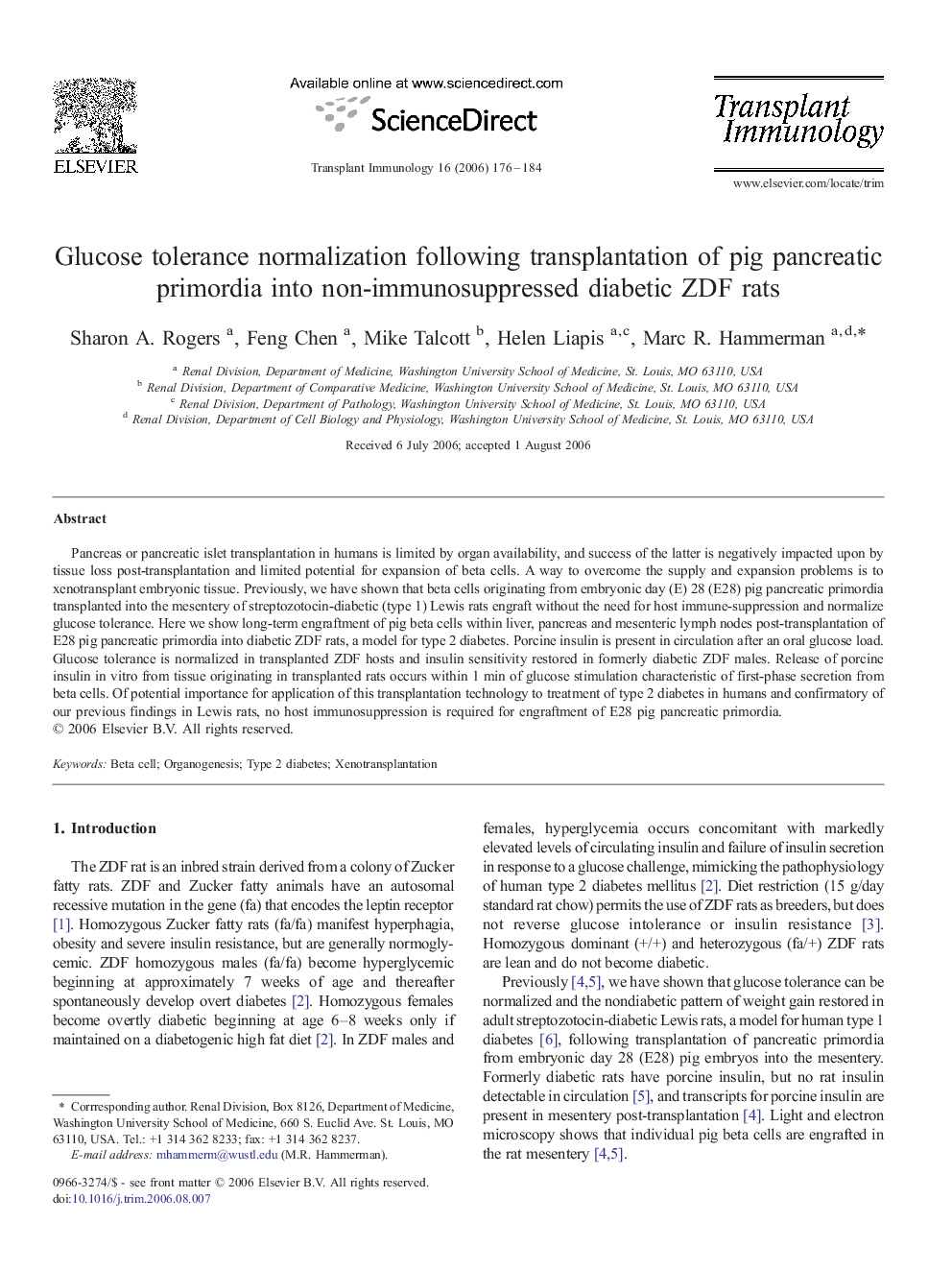| Article ID | Journal | Published Year | Pages | File Type |
|---|---|---|---|---|
| 3392593 | Transplant Immunology | 2006 | 9 Pages |
Pancreas or pancreatic islet transplantation in humans is limited by organ availability, and success of the latter is negatively impacted upon by tissue loss post-transplantation and limited potential for expansion of beta cells. A way to overcome the supply and expansion problems is to xenotransplant embryonic tissue. Previously, we have shown that beta cells originating from embryonic day (E) 28 (E28) pig pancreatic primordia transplanted into the mesentery of streptozotocin-diabetic (type 1) Lewis rats engraft without the need for host immune-suppression and normalize glucose tolerance. Here we show long-term engraftment of pig beta cells within liver, pancreas and mesenteric lymph nodes post-transplantation of E28 pig pancreatic primordia into diabetic ZDF rats, a model for type 2 diabetes. Porcine insulin is present in circulation after an oral glucose load. Glucose tolerance is normalized in transplanted ZDF hosts and insulin sensitivity restored in formerly diabetic ZDF males. Release of porcine insulin in vitro from tissue originating in transplanted rats occurs within 1 min of glucose stimulation characteristic of first-phase secretion from beta cells. Of potential importance for application of this transplantation technology to treatment of type 2 diabetes in humans and confirmatory of our previous findings in Lewis rats, no host immunosuppression is required for engraftment of E28 pig pancreatic primordia.
